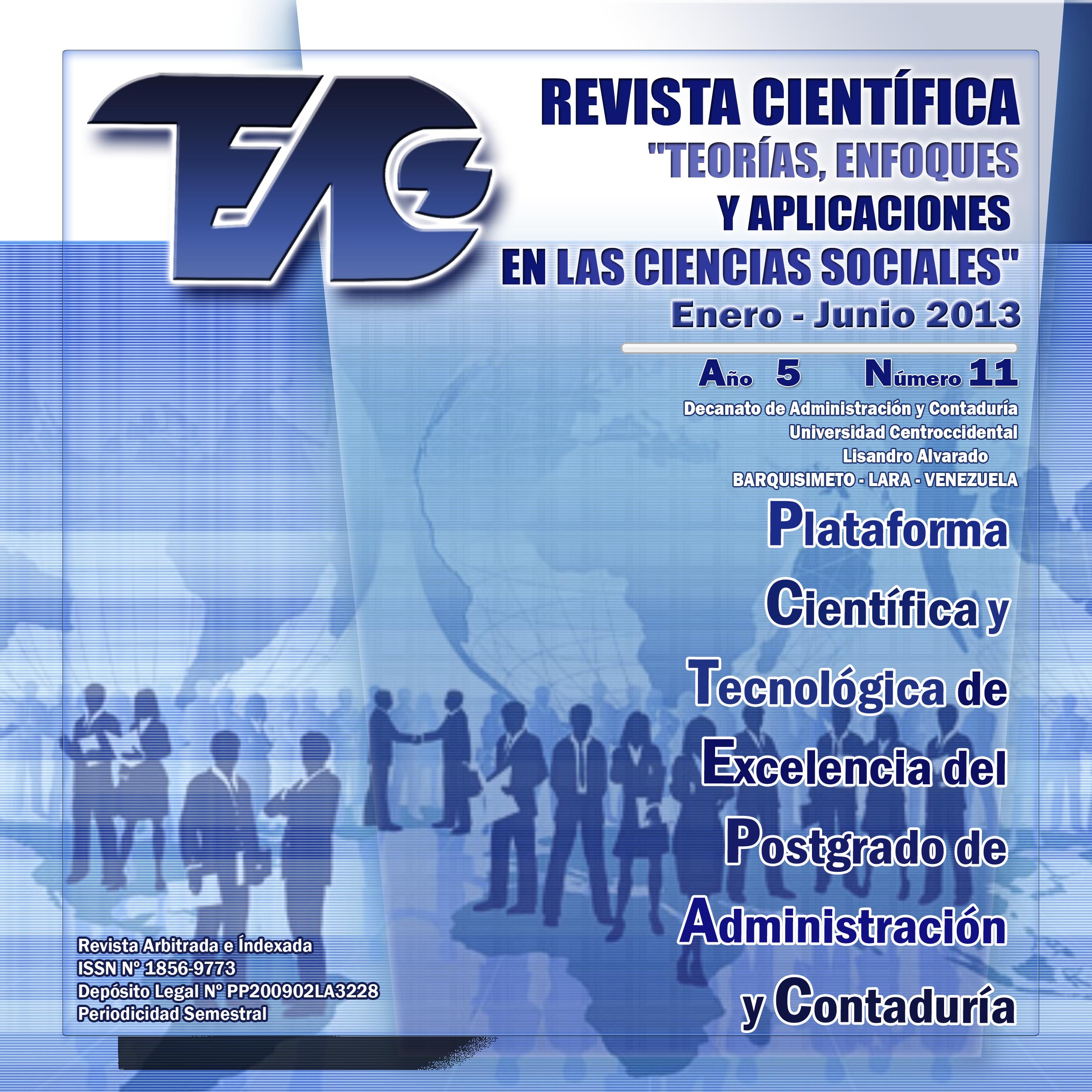Prospective: strategy capital
Keywords:
prospective, prospective models, capitalAbstract
In the globalized world, foresight is characterized by a holistic process that allows construction in future scenarios, establishing from the application of capital consolidation slogans as equitable growth, economic development and social networks collaborative work social community centered on the individual, therefore, the theoretical and practical use of foresight and social capital are reflected in public policies of states. This article aims to present a prospective plan for the city of Pamplona determining lines of action to display the city's long-term and major players that integrate capital network. The theoretical foundation is based on the contents of Medina and Ortegón (2007), Miklos (2000), Fukuyama (2001) among others, carried by an interpretive approach, through a qualitative methodology, descriptive, using documentary analysis, die design appropriate to the context under study and prospective models. Also being supported in previous studies as the three economic development forums developed from 2008 to 2010, which formed the basis for the prospective as background process. It is noteworthy that studying in Pamplona Norte de Santander factors such as trade, services, industry, tourism, agriculture, supportive and educational likely envision a future in front of a desirable future by reasoning about the impact that social capital fosters development strategy.
Downloads
References
Fukuyama, Francis (2001), "Social capital, civil society, and development", Third World Quarterly, vol.22.
Georghiou, luke, Cassingena, Jennifer, Keenen, Michael, Miles, Lan y Popper, Rafael (2008), Manual de prospectiva tecnológica: conceptos y práctica. Editores. México. p.182.
Häuberer, Julia (2010). Social Capital Theory, Editorial Office. p.35
Lesser, Erick (2000). Knowledge and Social Capital. Global Real. p. 45
Medina, Javier y Ortegón, Edgar (2007), Manual de prospectiva y decisión estratégica: bases teóricas e instrumentos para América Latina y el Caribe. Naciones Unidas. p 127
MIKLOS Tomas, TELLO María (2000). Planeación Prospectiva "Una mirada para el diseño del Futuro" EDITORIA Limusa, Grupo Noriega Editores. México, España, Venezuela, Colombia. p 70 - 99.
Sánchez, Rolando (2007). Capital Social y Posibilidades de Desarrollo en Los Municipios. Editor Plural. Bolivia. p. 30
Análisis estructural y Estrategia de los Actores Métodos Micmac y Mactor. En: http://es.scribd.com/doc/29616235/godet-analisis-estructural. Consultado junio 2012.
Cámara de Comercio de Pamplona Norte de Santander (2012). En: www.camarapamplona.org.co Consultado junio 2012.
Published
How to Cite
Issue
Section
Derechos del/de autor/es a partir del año de publicación
Esta obra está bajo la licencia:
Creative Commons Reconocimiento-NoComercial-CompartirIgual 4.0 Internacional (CC BY-NC-SA 4.0)
Las opiniones expresadas por los autores no necesariamente reflejan la postura del editor de la publicación ni de la UCLA. Se autoriza la reproducción total o parcial de los textos aquí publicados, siempre y cuando se cite la fuente completa y la dirección electrónica de esta revista. Los autores(as) tienen el derecho de utilizar sus artículos para cualquier propósito siempre y cuando se realice sin fines de lucro. Los autores(as) pueden publicar en internet o cualquier otro medio la versión final aprobada de su trabajo, luego que esta ha sido publicada en esta revista.



